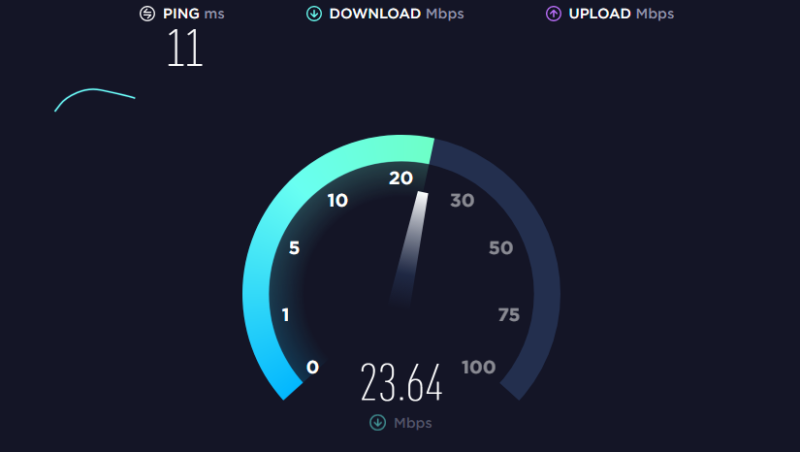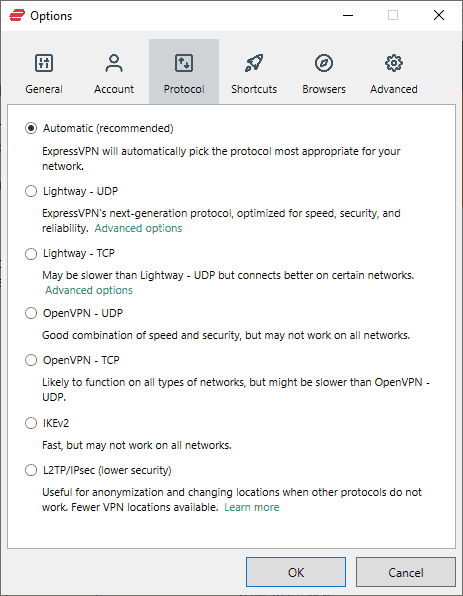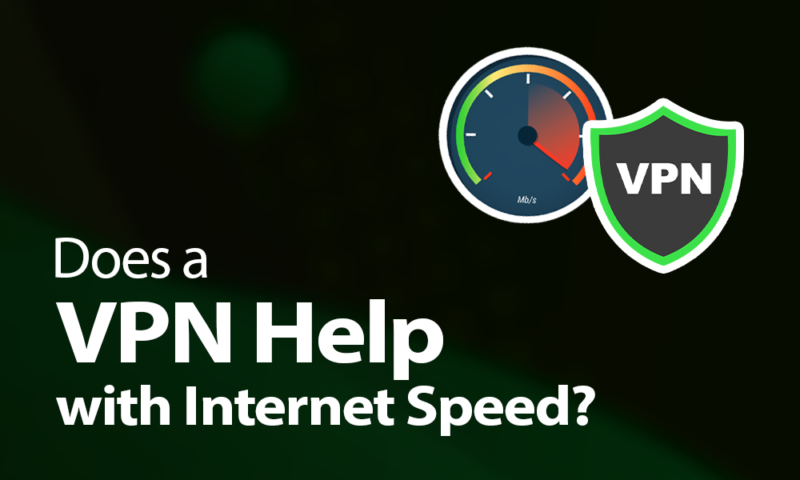Does a VPN Help With Internet Speed in 2024?
If you understand how a VPN works, you might not think that it’s possible for a VPN to improve your internet speed. Although most of the time a virtual private network will decrease your speed rather than increase it, there are a few exceptions to this rule.
Key Takeaways: VPNs & Internet Speeds
- In most cases, you’ll see a slight speed drop in your internet connection when you connect to a VPN.
- If your ISP is throttling certain types of traffic or has poor peering with other networks, the opposite can be true.
- If your VPN is drastically reducing your bandwidth, try changing the server and protocol before considering a provider with faster VPN speeds.
In certain cases, ISP-specific issues might be slowing down your connection. If this is happening to you, masking what type of traffic you’re sending can circumvent these problems. So, does a virtual private network (VPN) help with internet speed? Generally, no, but there are some notable exceptions.
In this article, we’ll cover the cases where VPN connection speeds might exceed normal internet connection speeds. Beyond that, we’ll take a look at the much more common scenario, which is slow VPN connection speeds and how you might go about improving them.
-
01/09/2024
We updated this article to include an “expert opinion” on the topic.
How Does a VPN Help With Internet Speed?
Most of the time, you won’t get a speed increase by using a VPN. That’s because a VPN can’t actually increase the amount of bandwidth available to you beyond what your connection is capable of. That said, there are a couple of exceptions to this.
ISP Throttling
The main one you might encounter is ISP throttling. In jurisdictions with poor net neutrality legislation, ISPs can decide to throttle certain types of internet traffic (commonly things like peer-to-peer downloads or high-definition streaming) in order to limit how much bandwidth you can use.

If your internet service provider is doing this, a VPN can mask the type of traffic you’re sending, making it impossible to selectively throttle.
Peering Agreements
Another case where a VPN can improve the speed of your internet traffic is if your ISP has poor peering agreements with other networks. We won’t get too deep into the details on this, but essentially, a peering agreement is a contract between two networks to cooperate and transfer each other’s traffic. If your ISP doesn’t have a lot of these, it can cause your connection to operate below the good internet speeds.
A VPN gets around this issue by masking the origin of your data, meaning other networks can’t tell that it came from a network with poorly configured or negotiated peering arrangements.
Why Do VPNs Slow Your Internet Connection?
Aside from the exceptions mentioned above, using a VPN to access the internet will generally result in increased latency and lower speeds (read our speed vs latency and bandwidth vs data rate guides to learn more). This is because using a VPN adds a step between you and the website or server you’re trying to access.
How to See if Your VPN Is Slowing Down Your Internet Speed
Figuring out if your VPN is slowing you down is simple. First, connect to the VPN and go to speedtest.net and run the test. Note the result once it finishes, then disconnect from the VPN and run the test again. This should give you a pretty good idea of the speed difference, but if you want as accurate a picture as possible, you can run a few tests and average the results.

How to Speed Up Your Virtual Private Network Connection
If your VPN is slowing you down, there’s a few different things you can try to improve your speeds. The first and easiest is to simply connect to a different VPN server. Things like server load and physical distance can greatly alter the speed you get, so make sure to try a few different ones.

If that doesn’t help, you can also try switching the VPN protocol. Most VPNs will default to OpenVPN, which should be fine, but it’s worth trying a few others like WireGuard or IKEv2 to see if your speed improves.
Finally, not all VPNs are created equal. If your VPN slows you down no matter what server and protocol you use, you might want to consider switching to a faster VPN.
Final Thoughts
At the end of the day, the slight decrease in internet speeds caused by most VPN providers is usually made up for by all the security features and access to geo-restricted content that you gain by using a VPN connection. On top of that, there are even some cases where a VPN might give you faster speeds.
If you think this could be the case for you, we recommend you check out our lists of the best VPNs to find a VPN provider that gets you the most bang for your buck while also potentially improving your bandwidth. While still at it check out our VPN speed comparison to find how top-tier services compare.
What did you think of our explanation of why a VPN could potentially provide faster internet speeds and our troubleshooting tips for VPN speed issues? Have you experienced ISP throttling or poor peering? Let us know in the comments below. Thank you for reading.
FAQ
Yes, VPNs will generally slow down your internet speed at least somewhat. However, unless your internet connection is very slow to begin with, the effect usually won’t be too noticeable. There are also certain rare cases where a VPN can actually improve your connection speed.
The fastest VPNs we’ve tested at Cloudwards are ExpressVPN, Surfshark, StrongVPN and ProtonVPN.



